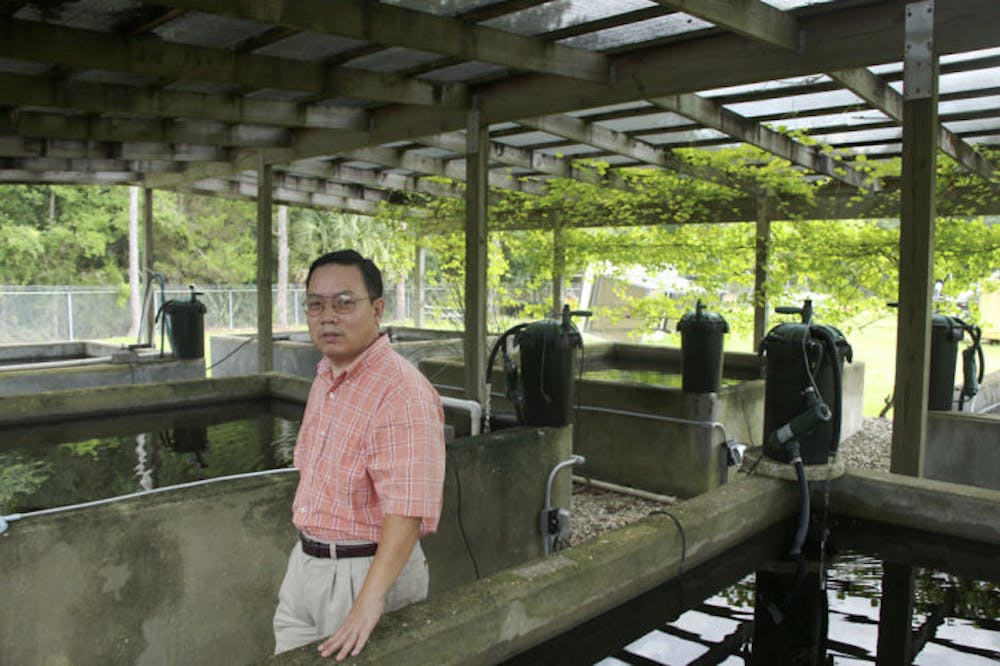That puddle from Florida’s frequent rain showers may not be as innocent as it appears.
Mosquitoes containing the Eastern equine encephalitis virus have been found in Alachua County, and small areas of standing water are their preferred breeding ground.
Two horses contracted the virus in late June, and the Alachua County Health Department recently released a mosquito-borne illness advisory to warn county residents on July 1.
Eastern equine encephalitis is a virus transmitted by mosquitoes that can infect humans and livestock. Symptoms may include fever, headache, dizziness, fatigue and confusion, according to the department.
Phillip Kaufman, associate professor of veterinary entomology at UF, said that horses tend to get hit by the virus first and that human outbreaks are more likely to occur shortly after.
People are most at risk of being bitten by mosquitoes carrying the virus during the dawn and dusk hours, he said.
Kaufman said residents should use mosquito repellents containing a chemical called DEET because they are the most effective to use for long-term protection.
He warns that while natural repellents work well, they are only useful in the short term.
“You have to keep applying them,” he said.
Peter Jiang, a Gainesville Mosquito Control entomologist, said the service’s main focus on preventing outbreaks is through larvicide, a measure that aims at killing mosquito eggs before they get the chance to develop.
The service will provide mosquito fish, which eat mosquito larvae, to Gainesville residents with ponds as a natural means to reduce the mosquito population.
“That’s one way you reduce using any pesticides,” Jiang said.
Jiang said Alachua County monitors viruses transmitted by mosquitoes using sentinel chickens in coops strategically located around the county. Sentinel chickens are used to test for viruses because the birds produce antibodies if they are bitten, and entomologists can determine the potential for an outbreak.
Karen St. Pierre, a Gainesville Mosquito Control service technician, works on mosquito traps set up by the service to monitor populations and test for viruses.
“Mosquito control begins in your backyard,” she said.
Anthony Dennis, environmental health director of the Florida Department of Health in Alachua County, said he advises people to eliminate mosquito breeding grounds that typically collect standing water, which include pots, buckets and other containers.
Dennis said while there hasn’t been a case involving a human contracting the virus in the past 20 years, it’s important to stay protected using repellent.
“There is no vaccine for humans to combat EEE,” Dennis said. “When we see the disease being transmitted, we take the opportunity to notify people.”
[A version of this story ran on pages 1 - 4 on 7/8/2014 under the headline "Mosquito-borne virus risk increased"]
Peter Jiang, an entomologist with Gainesville Mosquito Control, stands next to the service’s stock of mosquito fish. The fish are used as a natural means of killing mosquito larvae.
Sentinel chickens are caged on Gainesville Mosquito Control property. They are used to monitor the spread of viruses like Eastern equine encephalitis.
Gainesville Mosquito Control studies local mosquito populations using mosquito traps, which attract mosquitoes with lights and dry ice.






